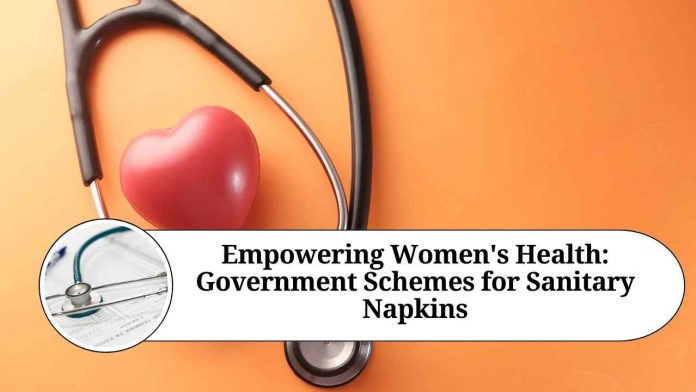Introduction
Access to safe and hygienic menstrual hygiene products is crucial for the well-being and empowerment of women. Recognizing this, governments around the world have implemented various schemes and initiatives to ensure that women have affordable access to sanitary napkins. In this blog, we will explore the importance of these government schemes and how they are making a positive impact on women’s health.
Breaking Taboos and Promoting Health:
For years, menstruation has been associated with stigma and shame in many societies. By introducing government schemes for sanitary napkins, authorities are actively working to break these taboos and promote a culture of openness and acceptance around menstrual health. These initiatives encourage women to prioritize their well-being and address their menstrual hygiene needs without fear or hesitation.
Ensuring Affordability and Accessibility:
One of the significant challenges that women face is the high cost of sanitary napkins. Government schemes aim to address this issue by making these essential products more affordable and accessible. By subsidizing or providing sanitary napkins free of cost, governments help to alleviate the financial burden on women, particularly those from economically disadvantaged backgrounds. This ensures that no woman is forced to compromise on her menstrual hygiene due to financial constraints.
Improving Health and Hygiene:
Using low-quality or unhygienic menstrual hygiene products can lead to various health problems, including infections and skin irritations. Government schemes focus on providing high-quality sanitary napkins that meet safety and hygiene standards. By using these reliable products, women can maintain proper menstrual hygiene, reducing the risk of infections and other related health issues. Moreover, these initiatives often come with awareness campaigns that educate women about proper usage and disposal of sanitary napkins, further enhancing their health and hygiene practices.
Encouraging Entrepreneurship and Employment:
Several government schemes for sanitary napkins also prioritize the establishment of local production units, generating employment opportunities for women. By setting up manufacturing units at the grassroots level, these schemes not only ensure the availability of sanitary napkins but also create avenues for women to become entrepreneurs. This empowers women economically, enhances their skills, and contributes to local development.
Fostering Education and Empowerment:
Access to sanitary napkins directly impacts girls’ education and overall empowerment. Lack of proper menstrual hygiene management often leads to absenteeism in schools, affecting girls’ educational outcomes. Government schemes address this issue by providing sanitary napkins to schoolgirls, ensuring they can attend school regularly, regardless of their menstrual cycle. By enabling girls to access education without interruption, these initiatives play a pivotal role in breaking the cycle of poverty and empowering young women.
Conclusion
Government schemes for sanitary napkins are transformative in the way they prioritize women’s health, break taboos, and empower women across various sections of society. By ensuring affordability, accessibility, and quality, these initiatives promote a healthier and more inclusive society. It is imperative that such schemes continue to be supported and expanded to reach every woman in need, further strengthening their overall well-being and contributing to a more gender-equal world.
Read more useful content:
Frequently Asked Questions (FAQs)
Q1: What is the government scheme for sanitary napkins?
A: The government scheme for sanitary napkins is an initiative by the government to provide affordable and accessible menstrual hygiene products to women. These schemes aim to break taboos, improve women’s health and hygiene, and promote empowerment by ensuring that women have access to high-quality sanitary napkins.
Q2: How do government schemes for sanitary napkins work?
A: Government schemes for sanitary napkins typically involve either subsidizing the cost of sanitary napkins or providing them free of charge to women, particularly those from economically disadvantaged backgrounds. These schemes often collaborate with local manufacturers to produce and distribute sanitary napkins, creating employment opportunities for women as well.
Q3: Who benefits from these government schemes?
A: The government schemes for sanitary napkins benefit women from all sections of society, with a particular focus on those facing financial constraints. These initiatives aim to ensure that no woman is forced to compromise on her menstrual hygiene due to affordability issues. Schoolgirls are also a significant beneficiary of these schemes as they help to address menstrual hygiene management in educational institutions.
Q4: How can women access sanitary napkins under these government schemes?
A: The process of accessing sanitary napkins under government schemes may vary depending on the specific program. In some cases, distribution centers are set up where women can obtain sanitary napkins either for free or at a subsidized rate. In schools, sanitary napkins may be provided to girls directly. Additionally, these schemes often collaborate with NGOs and local organizations to ensure widespread distribution.
Q5: Are the sanitary napkins provided under government schemes of good quality?
A: Yes, government schemes for sanitary napkins prioritize providing high-quality products that meet safety and hygiene standards. These products are sourced from reliable manufacturers or produced locally in collaboration with trusted partners. The aim is to ensure that women have access to sanitary napkins that are safe, comfortable, and effective in maintaining proper menstrual hygiene.
Q6: How do these government schemes promote women’s empowerment?
A: Government schemes for sanitary napkins promote women’s empowerment in multiple ways. By addressing the taboo surrounding menstruation, these initiatives foster a culture of openness and acceptance, empowering women to prioritize their health and well-being. Additionally, these schemes often involve the establishment of local production units, creating employment opportunities for women and fostering entrepreneurship. By ensuring girls’ access to sanitary napkins in schools, these schemes also contribute to girls’ education and overall empowerment.
Q7: Can women from rural areas benefit from these government schemes?
A: Absolutely. Government schemes for sanitary napkins are designed to reach women across all regions, including rural areas. These initiatives often focus on establishing distribution networks and production units at the grassroots level, ensuring that women in rural areas have easy access to sanitary napkins. These schemes play a crucial role in addressing the specific needs and challenges faced by women in rural communities.
Q8: How can individuals support government schemes for sanitary napkins?
A: Individuals can support government schemes for sanitary napkins by raising awareness about the importance of menstrual hygiene and challenging taboos surrounding menstruation. Supporting local manufacturers and NGOs involved in the production and distribution of sanitary napkins can also make a difference. Additionally, advocating for increased funding and expansion of these schemes can help ensure that more women benefit from the initiatives.




















